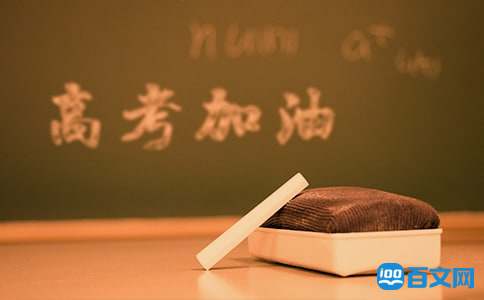高考英语复习:完形与阅读题集
明天就要高考了,今天小编准备了一些比较有代表性的高考英语阅读理解题给大家考前练练手,希望可以帮助同学们在高考前尽快找到自己的做题状态。

一、完形填空(本大题共1小题,共30分)
s a child, I was truly afraid of the dark and of getting lost; these fears were very real and caused me some uncomfortable moments.
Maybe it was the strange 36 things looked and sounded in my familiar room at night that 37 me so much. There was never total 38 , but a streetlight or passing car lights 39 clothes hung over a chair take on the 40 of a wild animal. Out of the corner of my 41 , I saw the curtains seem to move when there was no 42 . A tiny sound in the floor would seem a hundred times louder than in the daylight. My 43 would run wild, and my heart would beat fast. I would 44 very still so that the “enemy” would not discover me.
Another of my childhood fears was that I would get lost, 45 on the way home from school. Every morning I got on the school bus right near my home―that was no 46 . After school, 47 , when all the buses were 48 up along the street, I was afraid that I’d get on the wrong one and be taken to some 49 neighborhood. On school or family trips to a park or a museum, I wouldn’t 50 the leaders out of my sight.
Perhaps one of the worst fears 51 all I had as a child was that of not being liked or 52 by others. Being popular was so important to me 53 , and the fear of not being liked was a 54 one.
One of the processes (过程) of growing up is being able to 55 and overcome our fears. Understanding the things that frightened us as children helps us achieve greater success later in life.
36. A. way B. time C. place D. reason
37. A. wounded B. destroyed C. surprised D. frightened
38. A. quietness B. darkness C. emptiness D. loneliness
39. A. got B. forced C. made D. caused
40. A. spirit B. height C. body D. shape
41. A. eye B. window C. mouth D. door
42. A. breath B. wind C. air D. sound
43. A. belief B. feeling C. imagination D. doubt
44. A. lay B. hide C. rest D. lie
45. A. especially B. simply C. probably D. directly
46. A. discussion B. problem C. joke D. matter
47. A. though B. yet C. although D. still
48. A. called B. backed C. lined D. packed
49. A. old B. crowded C. poor D. unfamiliar
50. A. leave B. let C. order D. send
51. A. above B. in C. of D. at
52. A. protected B. guided C. believed D. accepted
53. A. then B. there C. once D. anyway
54. A. strict B. powerful C. heavy D. right
55. A. realize B. remember C. recognize D. recover
二、阅读理解(本大题共2小题,共20分)
A
B
When you make a mistake, big or small, cherish it like it’s the most precious thing in the world. Because in some ways, it is.
Most of us feel bad when we make mistakes, beat ourselves up about it, feel like failures, get mad at ourselves.
And that’s only natural: most of us have been taught from a young age that mistakes are bad, that we should try to avoid mistakes. We’ve been scolded when we make mistakes—at home, school and work. Maybe not always, but probably enough times to make feeling bad about mistakes an unconscious reaction.
Yet without mistakes, we could not learn or grow. If you think about it that way, mistakes should be cherished and celebrated for being one of the most amazing things in the world: they make learning possible; they make growth and improvement possible.
By trial and error—trying things, making mistakes, and learning from those mistakes—we have figured out how to make electric light, to paint the ceiling of the Sistine Chapel, to fly.
Mistakes make walking possible for the smallest toddler, make speech possible, make works of genius possible.
Think about how we learn: we don’t just consume information about something and instantly know it or know how to do it. You don’t just read about painting, or writing, or computer programming, or baking, or playing the piano, and know how to do them right away. Instead, you get information about something, from reading or from another person or from observing, then you make mistakes and repeat, making mistakes, learning from those mistakes, until you’ve pretty much learned how to do something. That’s how we learn as babies and toddlers, and how we learn as adults. Mistakes are how we learn to do something new—because if you succeed at something, it’s probably something you already knew how to do. You haven’t really grown much from that success—at most it’s the last step on your journey, not the whole journey. Most of the journey was made up of mistakes, if it’s a good journey.